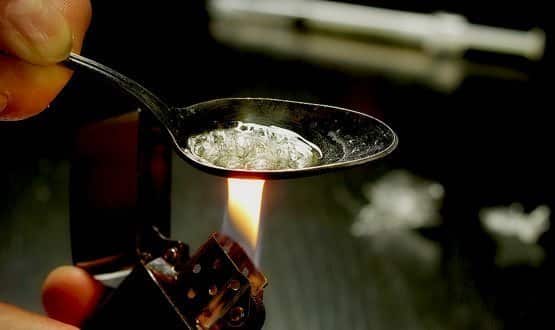Joe’s view of 40m SCRs
- 15 July 2014

Johnny was a charmer but a self confessed junkie. He was 19 when he died.
The council had reduced the bin collection to fortnightly just the year before and fly-tipping was rife.
The cold snap meant no one noticed the smell until the council workers arrived to clear the fly-tipping site where Johnny’s body had lain among the bin bags and builders’ rubbish for a week at least.
Ironic that the council JCB driver should see him flop lifelessly from his machine’s huge scoop into the dustcart; Johnny had spent most of his childhood in the care of the council.
First, he had been in foster care and later he was in a string of local authority children’s homes, after his mother died of alcoholic liver disease. He never knew his father.
In and out of services
Johnny had been badly damaged by his neglected early upbringing and probably wasn’t handed the best genetic hand in terms of vulnerability to addictions.
Despite the best efforts of his social workers, foster placement after foster placement broke down because of Johnny’s unmanageable behavior. A series of stays in children’s homes and a spell in residential school did nothing to tame Johnny’s tendency to excess.
He started drinking alcohol at 10 years old, dabbled with solvent abuse, and worked his way up the drug hierarchy until by 16 he was an injecting drug addict.
Young heroin addicts are notoriously difficult to treat because their motivation to stop is so poor. They fail to see that they have a drug “problem”; they are having drug fun and the problems come later, prison, hepatitis, and so on, and so forth.
So Johnny persisted with his career as a junkie. He learned how to steal and commit minor frauds. He became a very competent liar.
He learned how to convince doctors that he had painful medical conditions in order to obtain prescription medication with street value, or to help him through times of no heroin.
Eventually Johnny’s luck ran out. He got caught selling on a fraudulently obtained iPhone, while on last chance probation following a string of previous offences. He was put on a drug treatment order.
He was obliged to seek treatment, but his heart wasn’t in it and he quickly relapsed, turned back to crime and ended up inside.
The prison health service quickly put him on a reducing regime of methadone when he started to “rattle” after admission; and he was briefly drug free.
Johnny didn’t count the cannabis smuggled to him as a “proper drug”. He’d say: “But everyone smokes cannabis, Doc –even you” and smile a smile full of mischief.
When he got out he went straight back to his old haunts and old ways. He egistered with a new GP (the old one had been a bit too stingy with the benzoes and codeine). He charmed his way onto some pain relief and sleepers down at the general practice.
He also went to the secondary care addiction service and with some slight of hand and a well rehearsed story got started on a methadone script. In another world he would be a tutor at the Actors Studio.
A lethal cocktail
Only the crematorium staff attended Johnny’s funeral. At the inquest the coroner recorded a verdict of death by misadventure.
Toxicology revealed he had in his bloodstream: diamorphine (heroin); methadone; codeine; and diazepam. This self administered cocktail had killed him.
Typically, Johnny had failed to mention to his GP that he was being prescribed for by the addictions service and vice versa. Neither prescriber was aware of the fatal cocktail Johnny had possessed.
It would be a week after his death that the relevant correspondence would be exchanged between primary and secondary care.
The police concluded that he had died in a local “shooting gallery” and (because of the need to avoid the attention of the police) his “friends’ had dumped his body in the convenient impromptu refuse dump.
New forms of negligence
I review many serious untoward incidents every year, including the deaths of young people addicted to opiates.
Lately, I have been checking how many patients we review have come from a practice that has gone live with the NHS Summary Care Record. Increasingly, people do have SCRs. A tipping point has been reached.
If a secondary care service cannot access the SCR – and it has no other means of seeing into the GP record – I think it may shortly find itself explaining to a coroner why it hasn’t explored its use.
In the past, the excuse “it’s not worth checking the SCR because he probably hasn’t got one” was valid. But now that 40m people have a record, and numbers are growing by a million a month, “he probably has”; and it won’t be too long before not viewing the SCR might be considered negligent.
So well done SCR people. I said 18 months ago that the programme needed to get really useful really quickly and now it is really useful.
Those of us in secondary care now need to press for access, particularly in areas where the reconciliation of primary and secondary care medication is critical to safety of vulnerable groups.
Maybe nothing could have saved Johnnie; but maybe the SCR would have done. It would have been long odds; perhaps a million to one shot?
But among 40m records a million to one shot will happen 40 times. That’s 40 Johnnies still alive and charming, living long enough to get clean and take their places at drama school – rather than among the trash.


Joe McDonald
Joe McDonald is a practising NHS consultant psychiatrist. Over the past five years he has been an NHS trust medical director and national clinical lead for IT at NHS Connecting for Health – a stint that included 18 months as medical director of the Lorenzo delivery team!
His experiences in the National Programme for IT in the NHS have left him with a passion for usability and "end user knowledge networks.” He is the founding chairman of the National Mental Health Informatics Network. Motto: we don't get fooled again. Follow him on twitter @CompareSoftware




